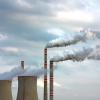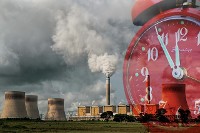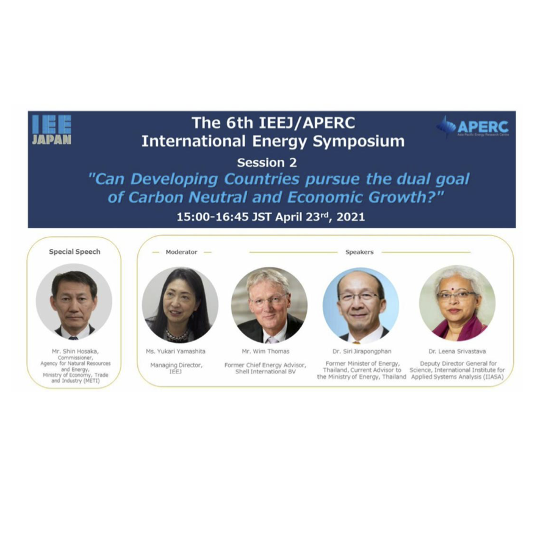
IIASA Deputy Director General for Science Leena Srivastava joined the Institute of Energy Economics Japan (IEEJ) / Asia Pacific Energy Research Centre (APERC) International Energy Symposium presenting the challenges of meeting carbon neutrality targets and achieving economic growth for developing countries.
 © IIASA
© IIASA
With the prolonged and serious impacts of the COVID-19 pandemic, the global energy and environment situation has become increasingly confusing and uncertain. On the other hand, a number of countries began tackling climate change in earnest. Following the European major states, China, Japan, the Republic of Korea, and other countries, pledged to be carbon neutral by mid-century.
Due to the forecast that the Biden administration would pledge about the same target, the focal point of the discussions among developed countries has already shifted to how they can achieve carbon neutrality by 2050, the effective and pragmatic means of the ambitious goal.
Meanwhile, Asian developing countries have acute interests in the affordability of innovative technology developments such as the decarbonization of fossil fuels since they, in their policy agenda, prioritize economic growth and education more than climate change, and the cost of non-fossil fuels, including renewable and nuclear energy, is relatively high. Moreover, Middle East nations, while struggling for economic diversification, vastly aim for continued use of fossil fuels by means of decarbonization technology.
Commemorating its 50th Anniversary, the Institute of Energy Economics Japan (IEEJ) together with the Asia Pacific Energy Research Centre (APERC) hosted an international energy symposium focusing on the means for achieving carbon neutrality, from multi-angle views to effects on Asian developing countries and the Middle East region.
Srivastava joined the panel symposium discussing the topic "Can Developing Countries pursue the dual goal of Carbon Neutrality and Economic Growth?" The panel discussed two main questions, namely 1. whether carbon neutrality interrupts economic growth in developing countries, and 2. what is actually needed to pursue the dual goal of Carbon Neutrality and Economic Growth.
Panel topic: Can developing countries pursue the dual goal of carbon neutrality and economic growth?
Panellists:
- Wim Thomas - Former Chief Energy Advisor, Shell Strategy Business Environment, Shell International BV Presentation Material: click HERE
- Siri Jirapongphan, Former Minister of Energy, Thailand, Current Advisor to the Minister of Energy, Thailand
- Leena Srivastava Deputy Director General for Science, International Institute for Applied Systems Analysis (IIASA). Presentation Material: click HERE.
- Moderator: Ms. Yukari Yamashita, Managing Director, IEEJ
 ©
©
Upcoming Events
The Orient Jakarta, a Royal Hideaway Hotel Jalan Jendral Sudirman No. 36, Bendungan Hilir, Kecamatan Tanah Abang, Kota Jakarta Pusat, Daerah Khusus Ibukota Jakarta, 10210